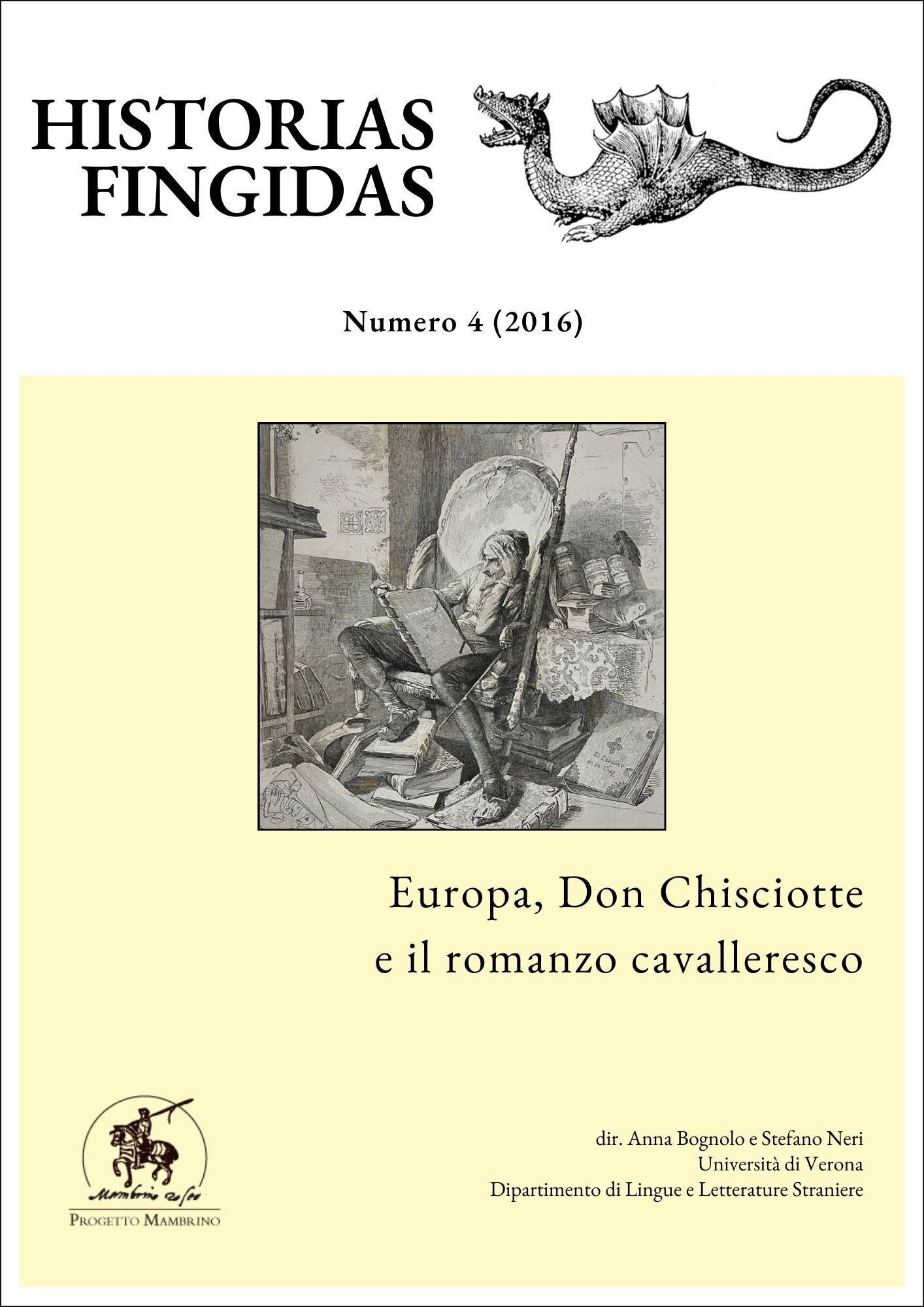Fetiches caballerescos y simulacros de la memoria en Alonso Quijano: reflexiones sobre una posible tipología del humorismo cervantino.
DOI:
https://doi.org/10.13136/2284-2667/47Palavras-chave:
Don Quijote, lectura, ética, estética, humorismo, simulacrosResumo
Con disposición mimética por antonomasia, don Quijote se vuelve personaje y plantea a sus compañeros de viaje problemas éticos y estéticos a la vez. Errante, desarraigado, en exilio incesante de sí mismo, se rodea de fetiches e imágenes del pasado que él mismo maneja con dificultad. Estas reflexiones – tan solo en forma demostrativa y en estado de esbozo – quieren observar este aspecto dentro del sistema humorístico de Cervantes, en el que Alonso Quijano está en crisis con objetos que tiene la necesidad de transformar en simulacros de sus lecturas (simulacros a su vez de una realidad imaginada por otros).
With quintessential mimetic attitude, Don Quixote becomes a character and poses to his traveling companions certain ethical problems that, inevitably, are also aesthetic ones. Wanderer, uprooted, in perpetual exile from himself, he surrounds himself with fetishes and images from the past that he finds difficult to handle. We propose in this paper - only by way of example and draft - to observe this aspect within the Cervantes humorous system, in which Alonso Quijano is in a crisis with objects that he has the need to transform into the simulacra of his reading (already simulacra of a reality imagined by others).
Downloads
Publicado
Edição
Secção
Licença
Direitos de Autor (c) 2016 Giovanni Cara

Este trabalho encontra-se publicado com a Licença Internacional Creative Commons Atribuição-NãoComercial 4.0.
Gli autori che pubblicano su questa rivista accettano le seguenti condizioni:- Gli autori mantengono i diritti sulla loro opera e cedono alla rivista il diritto di prima pubblicazione dell'opera, contemporaneamente licenziata sotto una Licenza Creative Commons - Attribuzione - Non Commerciale che permette ad altri di condividere l'opera indicando la paternità intellettuale e la prima pubblicazione su questa rivista a fini non commerciali .
- Gli autori possono aderire ad altri accordi di licenza non esclusiva per la distribuzione della versione dell'opera pubblicata (es. depositarla in un archivio istituzionale o pubblicarla in una monografia), a patto di indicare che la prima pubblicazione è avvenuta su questa rivista.
- Gli autori possono diffondere la loro opera online (es. in repository istituzionali o nel loro sito web) prima e durante il processo di submission, poiché può portare a scambi produttivi e aumentare le citazioni dell'opera pubblicata (Vedi The Effect of Open Access).

